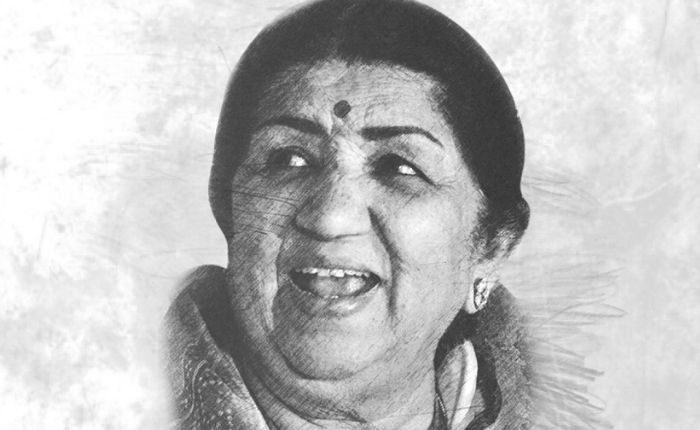Lata Mangeshkar's Journey

Lata Mangeshkar's journey in the music industry is a testament to her unmatched talent, perseverance, and dedication. Born into a culturally diverse Brahmin family on September 28, 1929, in Indore, she was immersed in a rich musical heritage. Her father, Deenanath Mangeshkar, was a respected classical singer and theater actor, while her mother, Shevanti, brought Gujarati folk traditions to her upbringing.
Renamed Lata from Hema, she was the eldest among her siblings, including renowned singer Asha Bhosle. Lata's early musical education began under her father's guidance, and by the age of five, she was already displaying her talent in his musical plays. However, her formal schooling was short-lived due to restrictions on bringing her sister Asha along.
Tragedy struck at the age of 13 when her father passed away in 1942. Master Vinayak, a family friend, played a pivotal role in supporting the Mangeshkar family during this difficult time. Lata, under his guidance, entered the world of music and acting. Despite initial challenges and discomfort on film sets, her passion for singing prevailed.
Moving to Mumbai in 1945, Lata pursued Hindustani classical music lessons under Ustad Aman Ali Khan. Her journey in playback singing began with Marathi and Hindi films. Ghulam Haider recognized her potential and provided her with a breakthrough in Majboor (1948). Despite initial skepticism, Lata's distinctive voice and emotive delivery soon captivated audiences.
The iconic song "Aayega Aanewaala" from Mahal (1949) marked a turning point in her career, bringing widespread recognition. Lata went on to achieve unparalleled success, becoming the "Queen of Melody," "Nightingale of India," and receiving prestigious awards, including the Dadasaheb Phalke Award and Bharat Ratna.
Her versatility was evident in recordings across multiple languages, and she became the first Indian playback singer to perform at the Royal Albert Hall in 1974. The Guinness World Records recognized her as the most recorded artist, showcasing her immense impact on the music industry.
Lata Mangeshkar's legacy endures, inspiring generations of musicians and fans globally. Her contributions to Indian music, particularly in Hindi, Bengali, and Marathi, have left an indelible mark, making her an everlasting symbol of melody and musical excellence. Lata Mangeshkar's passing on February 6, 2022, marked the end of an era, but her timeless melodies continue to resonate and enchant listeners worldwide.
References;
- "Playlist Ghazals – Lata Mangeshkar on Gaana.com". Gaana.
- "Lata releases first Sufi album, credits nephew" https://www.freepressjournal.in/amp/entertainment/lata-releases-first-sufi-album-credits-nephew
- "Playlist Bhakti By Lata Mangeshkar on Gaana.com". Gaana.
- "Playlist Bengali Folk Songs of Lata on Gaana.com". Gaana.
- "Lata Sings Gurbani Songs Download: Lata Sings Gurbani MP3 Punjabi Songs Online Free on Gaana.com" https://gaana.com/album/amp/lata-sings-gurbani.html Archived 7 June 2022 at the Wayback Machine
- "Lata Mangeshkar: The nightingale's tryst with Rabindra Sangeet". The Statesman. 28 September 2018. Retrieved 4 December 2018.
- "Perjalanan Karir Lata Mangeshkar Hingga Peremuannya Dengan Rhoma Irama". Sonora.id. 8 February 2022. Retrieved 8 July 2022.
- Bhagat, Shalini Venugopal (6 February 2022). "Lata Mangeshkar, Bollywood's Most Beloved Voice, Dies at 92". The New York Times. ISSN 0362-4331. Retrieved 27 April 2022.
- "Lata Mangeshkar was the soundtrack of newly independent India". The Economist.


































